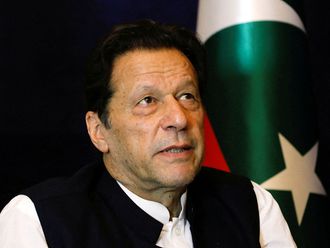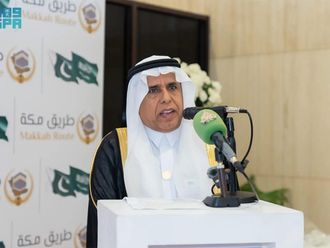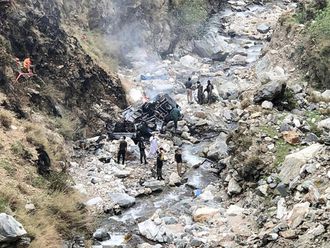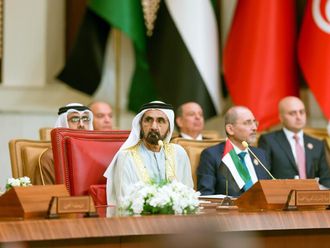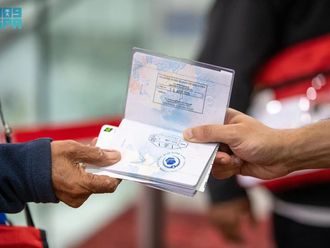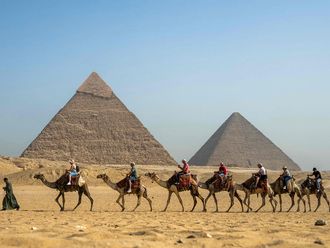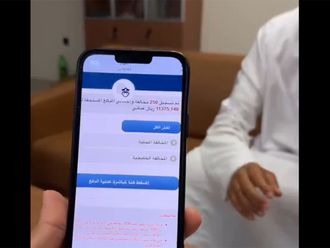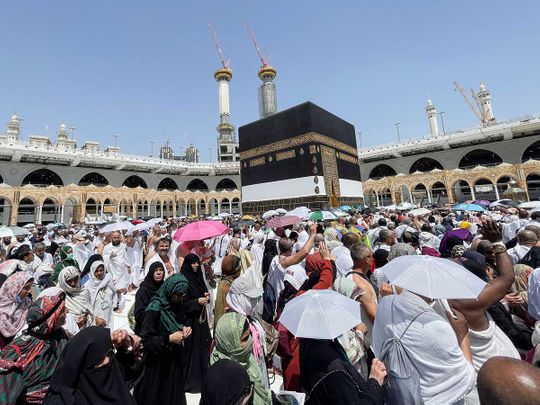
Cairo: Some 65,000 Pakistanis, planning to attend upcoming annual Islamic Hajj in Saudi Arabia, stand to benefit from a Saudi project offering pilgrimage-associated facilities compared to 26,000 last year.
Around 29,000 pilgrims are expected to benefit from the project, officially dubbed the “Road to Mecca” Initiative at the Islamabad airport and 35,000 others at the Karachi airport after Saudi authorities have agreed to expand the application of the initiative to the latter facility, according to the Pakistani Ministry of religious Affairs.
Starting from May 9, flights carrying Pakistani pilgrims to Saudi Arabia are scheduled to take off with the transport operations set to run for a month. This year’s Hajj is due in mid-June.
More than 30,000 Pakistani pilgrims will land in the Saudi city of Medina while over 34,000 others will touch down in Jeddah, before heading to the holy city of Mecca to perform Hajj rites, the Saudi news portal Sabq reported.
Also read
- Saudi Arabia moves to expose illegal Hajj pilgrims; tag to be displayed by legal pilgrims launched
- Saudi Arabia: Not permissible to perform Hajj without permit
- Saudi Arabia: Here are the updated rules for Hajj 2024 that prioritise pilgrims' health and safety
- Fighting polio: Hajj pilgrims get health boost in Bill Gates-supported disease control effort in Saudi Arabia
In 2018, the Saudi Interior Ministry relaunched the “Mecca Route” Initiative that gives pilgrims from several countries access to facilities. The initiative kicked off on a trial basis in 2017.
The facilities include issuance of electronic visas at home, finalising passport procedures as well as tagging and sorting out luggage at the departure airports.
On arrival in Saudi Arabia, those pilgrims head directly to their residences in the holy cities of Mecca and Medina while their luggage are delivered right to their residences.
Last year, the “Mecca Route” applied to pilgrims from seven countries, namely, Malaysia, Indonesia, Pakistan, Morocco, Bangladesh, Turkey and Cote d’Ivoire.
Hajj is one of Islam’s five obligatory duties. Muslims, who can physically and financially afford Hajj, have to perform it at least once in a lifetime.


